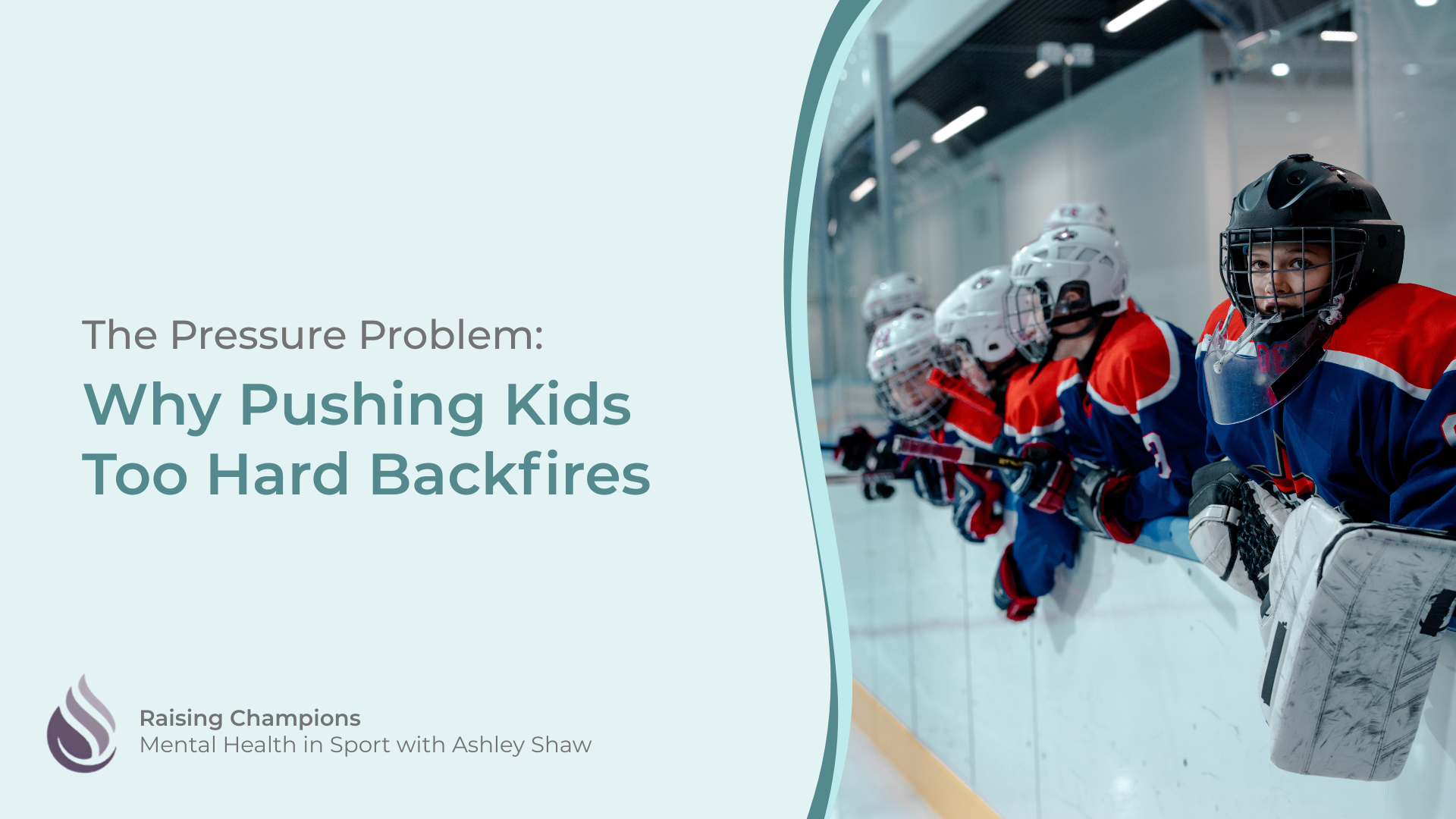
23 Nov The Pressure Problem — Why Pushing Kids Too Hard Backfires
As a coach, I’ve noticed how the tension on the bench among athletes shifts. If the coaches or other adults are too intense and focused on winning, the athletes become tense. They make more mistakes, they talk negatively and criticize their teammates more.
They pick up on our expectations and they don’t want to let us down. The tension they feel is disconnection and they’re desperately trying to restore it. They’re not playing for joy anymore. They’re playing for relief — to take away someone else’s disappointment, to feel connected and secure.
The Myth of “Motivation Through Pressure”
We tell ourselves pressure builds character.
But research — and decades of sport psychology — say otherwise.
Pressure builds performance anxiety, self-doubt, and avoidance.
When kids are pushed too hard, they don’t learn to compete — they learn to cope.
Their nervous system becomes wired for survival, not growth.
What Pressure Really Teaches
In Calgary’s intense sports culture, I see the same story again and again:
A child starts with love for the game — but the more adults hover, critique, and analyze, the less joy they feel.
Pressure teaches kids:
- “My worth depends on results.”
- “Mistakes mean I’m failing.”
- “Love is conditional.”
When kids internalize those beliefs, their self-esteem becomes fragile.
Even success feels temporary — because it’s rooted in fear of losing approval.
A Story From My Practice
One of my clients, a young swimmer, told me she used to hum songs underwater to calm herself.
After she joined a competitive program, her coach told her she needed to “get serious.”
So she stopped humming — and started crying before every meet.
When we reintroduced joy — humming, humor, connection — her performance actually improved.
That’s the irony: when the pressure drops, performance rises.
The Parent’s Role
If your child isn’t enjoying their sport, it doesn’t mean they’re lazy.
It means their nervous system is overwhelmed.
Instead of pushing harder, pause.
Ask:
- “What feels stressful right now?”
- “What would make it fun again?”
- “What kind of support do you need from me?”
Final Thought
Pressure doesn’t create champions.
Safety, curiosity, and connection do.
At Still Waters Psychology Calgary, I work with parents and athletes to replace pressure with purpose — because joy isn’t the opposite of discipline.
It’s what makes discipline sustainable.




No Comments